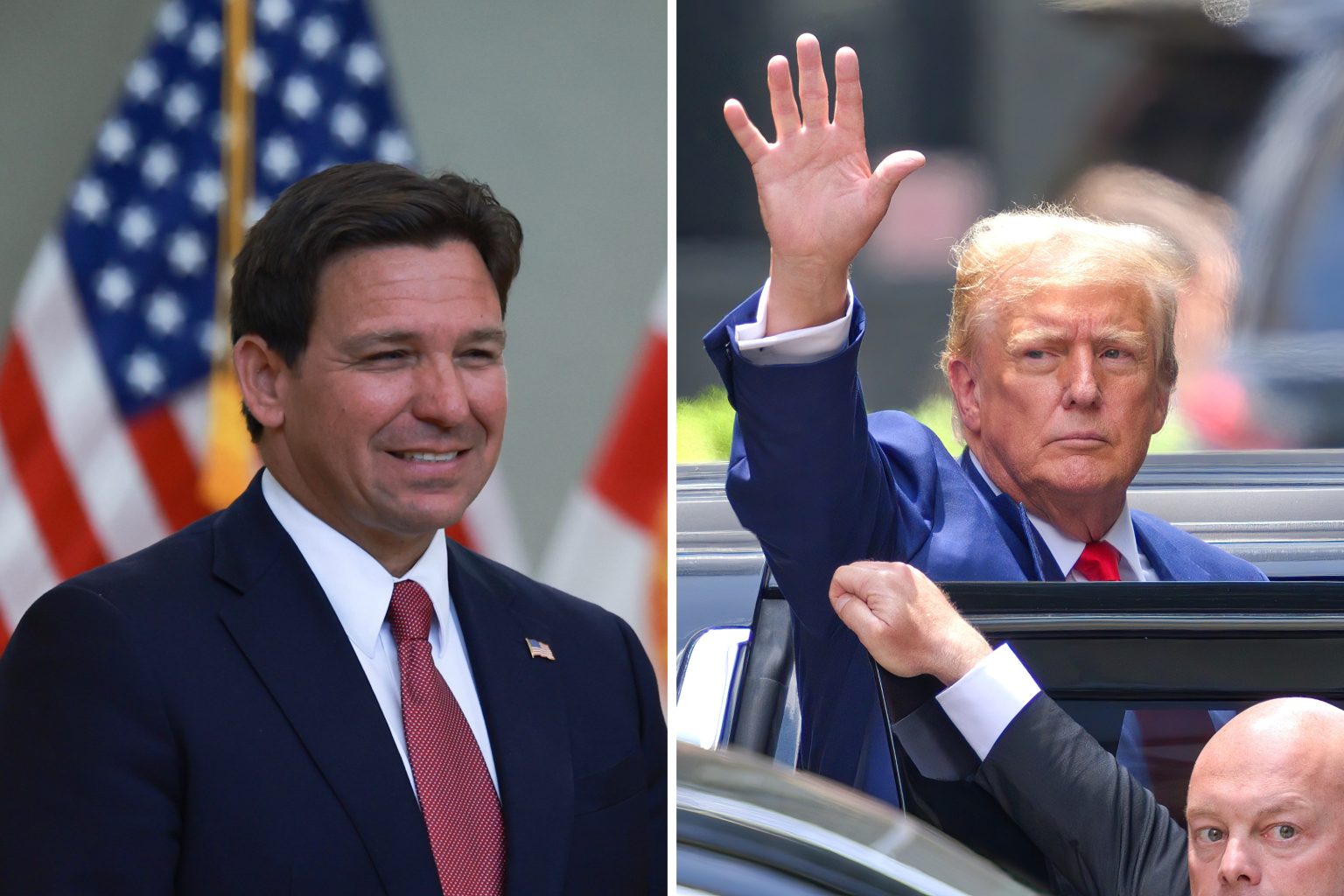Florida Governor DeSantis has promised to ensure that former President Trump will be able to vote in Florida even after being convicted of felonies in New York. This comes after Trump was found guilty of falsifying business records in Manhattan and was facing potential restrictions on his voting rights. While Florida typically does not allow convicted felons to vote without serving their sentences, Trump remains eligible to vote in New York since he is not currently serving his sentence. DeSantis, who had previously challenged Trump for the GOP nomination, has pledged to restore Trump’s voting rights in Florida, highlighting the state’s strong Republican support.
DeSantis emphasized that Trump has not lost his voting rights in Florida and that rights are only removed when they are stripped in the convicting jurisdiction. He described the case against Trump in New York as absurd and indicated that it would be an easy process to qualify for restoration of rights through the Florida Clemency Board, which he chairs. DeSantis expressed confidence that Trump’s vote in the upcoming election will be one of millions that reflect Florida’s solid Republican status. The Trump campaign has been contacted for comment on this matter, and the story is still developing with more information expected to be released.
The situation surrounding Trump’s voting rights in Florida has raised questions about the intersection of state laws and the implications of a felony conviction on voting eligibility. Despite the felony conviction in New York, Trump’s ability to vote in Florida hinges on the state’s discretion when it comes to out-of-state felony convictions. DeSantis’ intervention to ensure that Trump can exercise his voting rights reflects the complexity of the legal and political considerations at play in this case. The outcome of this situation will likely have broader implications for future cases involving voting rights for convicted felons in different jurisdictions.
The relationship between Trump and DeSantis, both prominent figures in the Republican party, adds another layer of interest to this story. DeSantis, who had previously considered running against Trump for the GOP nomination, now finds himself defending Trump’s voting rights in Florida. This dynamic highlights the shifting alliances and political strategies within the Republican party, especially as the 2024 presidential election approaches. DeSantis’ firm support for Trump in this matter could have implications for their individual political futures as well as the broader dynamics within the party.
The fact that Trump’s eligibility to vote is being closely monitored and disputed underscores the ongoing scrutiny and controversy surrounding his post-presidential activities. Trump’s legal troubles and the implications for his voting rights in this case are likely to fuel further debate and speculation about his role in politics moving forward. DeSantis’ proactive stance on this issue further solidifies his alignment with Trump and the Republican base in Florida, setting the stage for potential developments in their political relationship. As the story continues to unfold, the impact of this case on voting rights, legal interpretations, and political dynamics will continue to be analyzed and debated by experts and the public alike.


